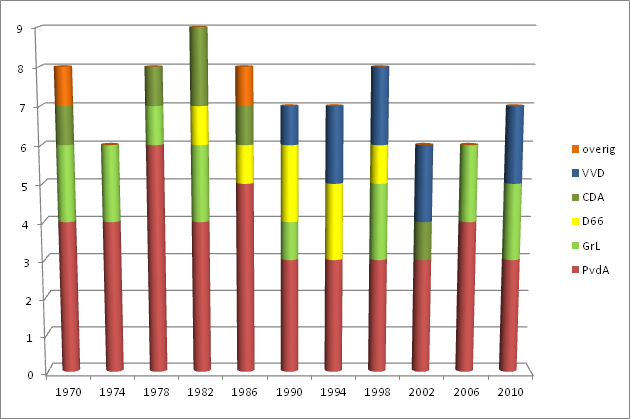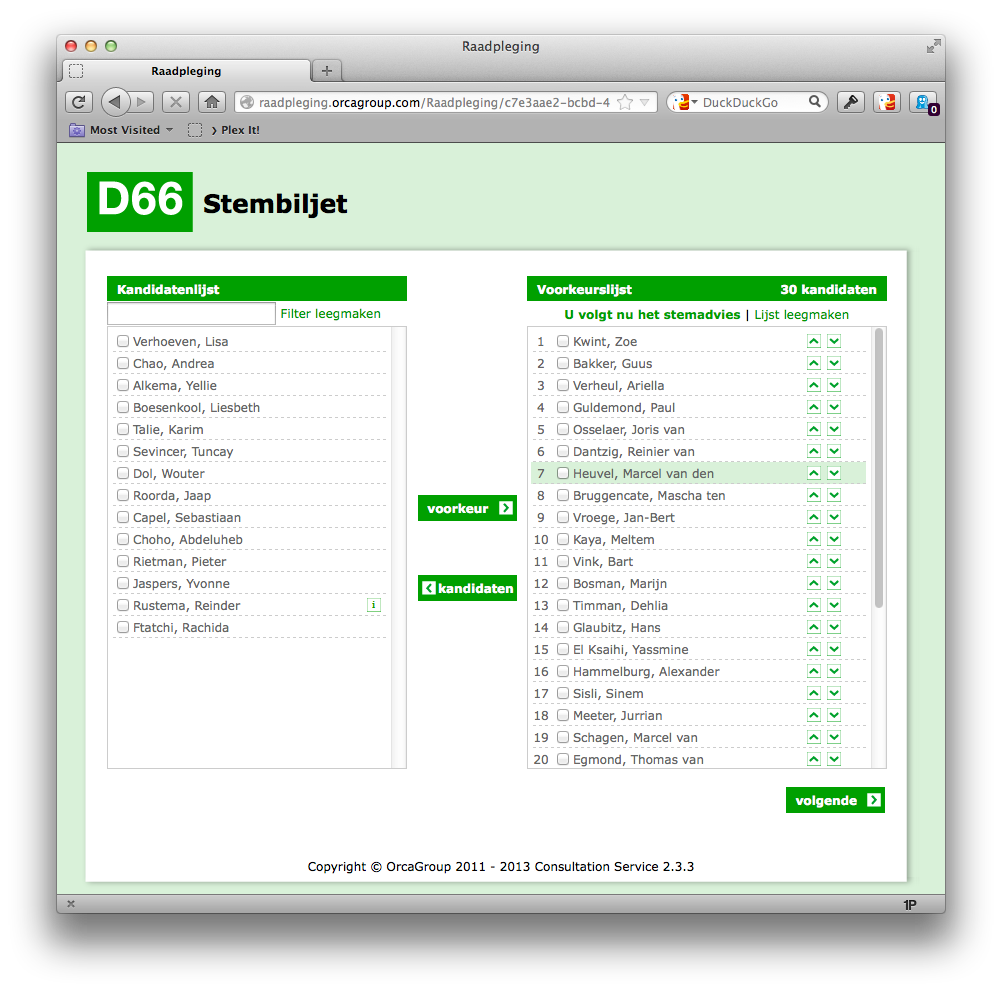There is a good opportunity to test the proposal of this blog for real after the next elections in Amsterdam. The 45 seats in the Council go to some 10 different parties. The biggest party is always de PvdA (social-democrats) with something between 12 and 20 seats. The next three biggest parties usually have some 6 to 10 seats. The other parties have a few or just one seat. This makes the PvdA the inevitable coalition leader. See the graphic below from Wikipedia or the historical data on the composition of the Council since 1962. In other words, the results are already known before the election. The question to be answered by the elections is: who will the PvdA make a coalition with?
Now, what if there are no coalitions and a majority of the council agrees to draft job descriptions for the 6 to 8 eldermen? Then the electorate of the four big parties can spread their votes freely over all the 10 (or more) parties. This improves the representation of the city and the grip of the big, inevitable PvdA on the city politics will disappear.
The six, seven or eight eldermen on the other hand then have to please the majority of the 45 seat Council. They can not count on their coalition majority, but also have to listen carefully to the wishes of the smaller parties. At the same time, the eldermen will strive for consistency of their policy and will strive to stay within their budget. Not any wish can be granted, good and informative debates about the issues themselves are required.
In order to prevent a coalition to form I have joined one of those second-biggest parties: D66. I will plea to not form a coalition with PvdA and call for the rest of the Council to not support a coalition to be formed. The list of D66 candidates for the election D66 will be 30. I am placed at position 44. Members of the party can vote me up in an internal procedure until September 19. If I make it on the ballot then I need a few thousand individual votes in the elections to get in the Council. Only with the help of (national) mainstream live television talkshows this is feasible.

